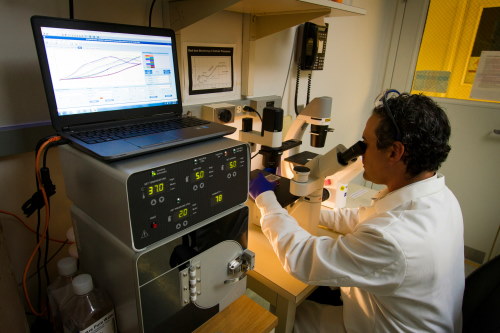The FDA decision means the test will be covered by Medicare and some commercial insurance plans soon.
Patients who are uncomfortable with colonoscopy and other screening tests for colorectal cancer have a new option: a blood test called Shield. The U.S. Food and Drug Administration (FDA) approved Shield as a primary screening option for colorectal cancer earlier this week.
BREAKING: 1 Cup of This Melts Belly and Arm Fat (Take Before Bed)
The Shield test needs to be repeated every three years.
Will Insurance Cover the New Colorectal Cancer Blood Test?
The FDA decision means Shield meets the performance requirements for Medicare coverage. Once coverage is established (expected in a few days), eligible Medicare Part B beneficiaries will have no out-of-pocket cost, says Mike Weist, spokesperson for Guardant Health, the company that produces Shield.
“The out-of-pocket cost for Medicare Advantage beneficiaries will vary depending on their individual plans. For patients with commercial insurance plans, the cost of the Shield test may vary depending on the individual plan coverage,” he says.
“Commercial insurance coverage for patients eligible for colorectal screening will continue to expand following anticipated future guideline inclusion by the American Cancer Society and the U.S. Preventive Services Task Force,” Weist says.
New Screening Test Can Be Part of Typical Blood Work at a Doctor’s Visit
The blood test may help increase the number of people who are screened for colorectal cancer, says Julius M. Wilder, MD, PhD, gastroenterologist and hepatologist at Duke Health in Durham, North Carolina.
“We are far below where we should be in terms of colon cancer screening, and this blood test allows for providers to incorporate colon cancer screening into the other typical blood work done as part of the usual physician visit,” says Dr. Wilder.
How Does the Blood Test Compare to Other Options?
If the procedure reveals nothing unusual, it only needs to be repeated every 10 years.
In addition, there are two main at-home tests for colorectal cancer:
- FIT (fecal immunochemical test) is about 79 percent accurate in detecting colon cancer. The test comes as a kit with instructions and materials to collect a small amount of fecal matter (poop) to be sent to the lab for analysis. It’s recommended that the test be repeated every one to two years.
- Cologuard (fecal DNA testing) has a 92 percent accuracy rate. It also involves collecting a poop sample and mailing it off. The test should be repeated every three years.
The New Blood Test Does Not Make Colonoscopy Obsolete
People should keep in mind that if the blood test is positive for colorectal cancer, they will still need to undergo a colonoscopy, says Wilder.
“Furthermore, this blood test is for individuals undergoing average risk screening for colon cancer. Individuals considered to be at high risk for colon cancer, including individuals with a family history of colon cancer or symptoms such as blood in their stool, should undergo a colonoscopy,” he says.
TRENDING: Diabetes Breakthrough Leaves Doctors Speechless - Try This Tonight
Bottom Line: The New Blood Test Will Help in the Fight Against Cancer
For the many people who are hesitant to get a colonoscopy or collect a stool sample at home for testing, Shield will be a very useful addition, says Wilder.
“This blood test will make it easier for everyone to be screened, hence allowing for more people to be screened, and hopefully detect colon cancer or more advanced polyps earlier, which will significantly improve survival,” he says.









